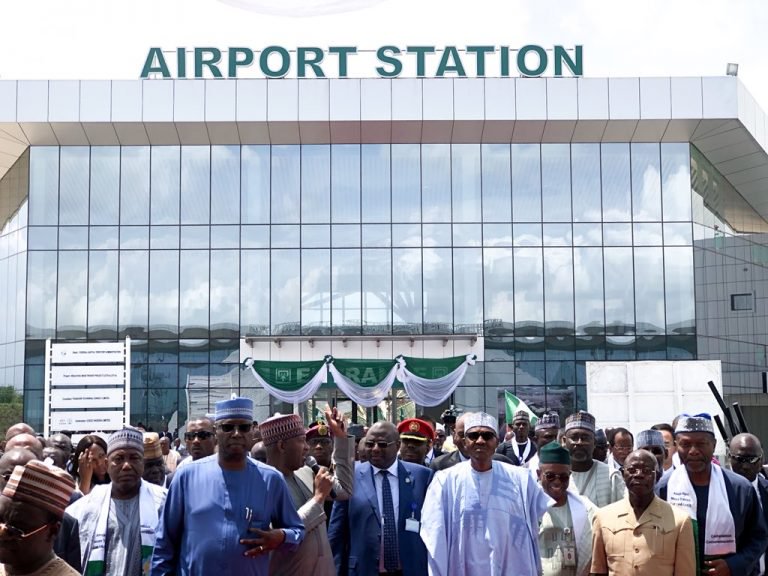
Nigeria’s new light rail officially goes into service

Nigeria on Thursday formally commissioned the China-assisted Abuja light rail transportation system, the first of its kind in West Africa.
Nigerian leader Muhammadu Buhari declared the full operation of phase one of the capital city’s light rail system, handled by China Civil Engineering Construction Corporation (CCECC) and partly funded by the Export-Import Bank of China.
Buhari, while delivering a keynote address at the light rail’s commissioning ceremony, hailed the project as a significant milestone in the history of Nigeria.
“I am very optimistic that a modern rail service would bring about a boost to the FCT (Federal Capital Territory) economy and greatly enhance social life,” said Buhari, who, thereafter, took a ride on the train.

Local passengers will enjoy a free ride on the train for one month, starting from Friday, said Kong Tao, an operations manager of the CCECC.
Kong said the three available coaches can convey more than 300 passengers on a trip, while at least 1,000 people are expected to daily ride on the train.
It covers 12 stations, 21 operational offices, 13 bridges, 50 culverts and nine pedestrian overpasses.
The commissioning was preceded by a three-month test run, during which residents of Abuja beheld the new addition to the country’s transportation infrastructure.


Buhari, together with key cabinet members and officials of the Federal Capital Territory Administration, flagged off the light rail transportation from the Abuja Metro Station, located behind the Abuja World Trade Center still under construction in the city center.
The president and co-passengers, including Zhou Pingjian, the Chinese ambassador in Nigeria, rode on the train to the Abuja Airport Terminal at the capital city’s Nnamdi Azikwe International Airport.

Nigerians had long anticipated the use of this facility, said Daniel Obot, a local civil servant.
According to him, the local transportation experience in the city of Abuja, the political capital of Nigeria, may never be the same as the train service cuts down travel time and cost.
Abuja, with a population of 4 million, is a relatively new city in Nigeria, but one of the fastest developing cities in Africa.
The construction of the light rail and its use is expected to open up new towns and boost economic activities along the corridor of Gwagwa, Kalgoni, DeiDei, Kubwa, Kokoaba, Dasonga, Asa, among 12 satellite towns in the Nigerian capital city.






